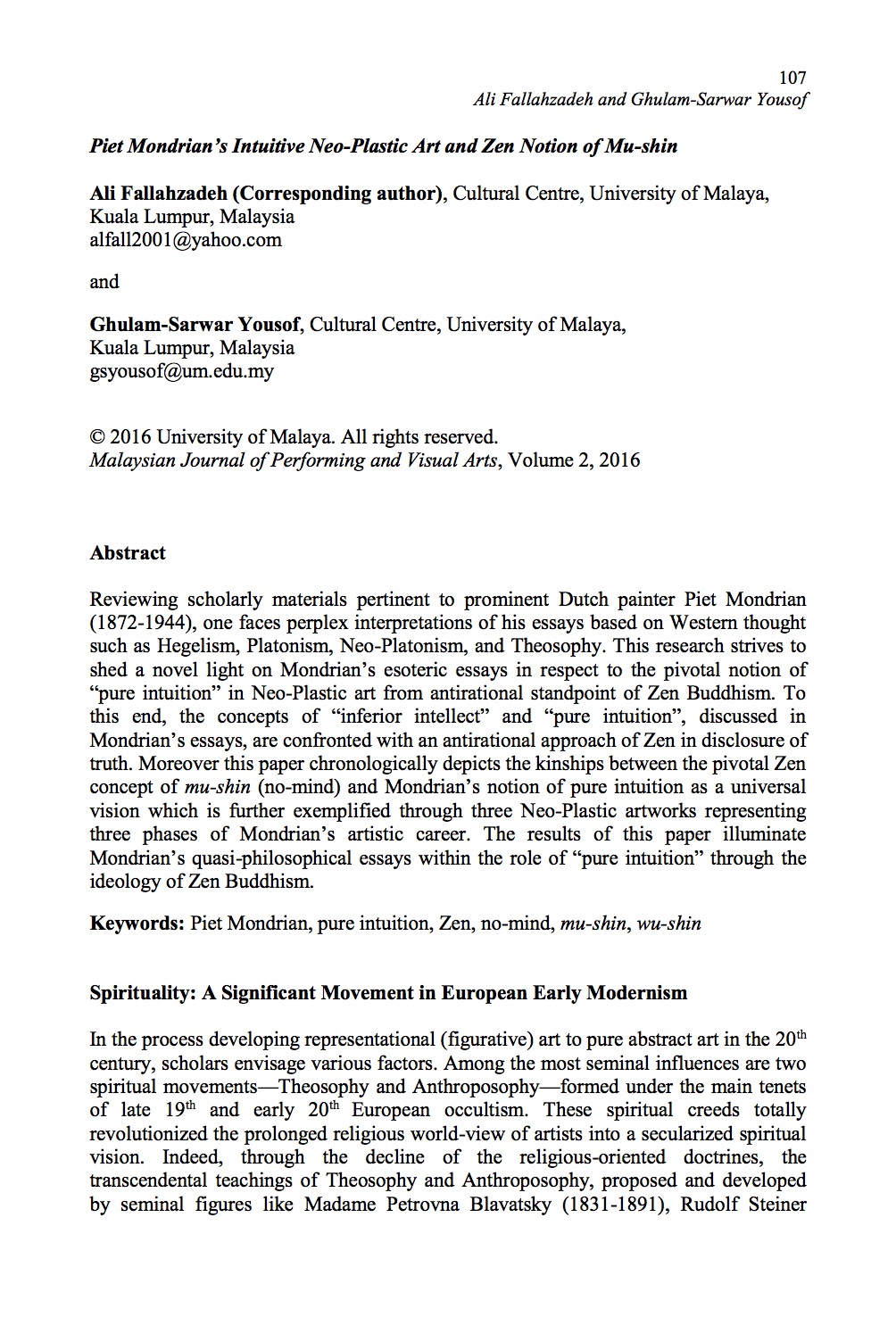Piet Mondrian's Intuitive Neo-Plastic Art and Zen Notion of Mu-shin
Main Article Content
Abstract
Abstract Reviewing scholarly materials pertinent to prominent Dutch painter Piet Mondrian (1872-1944), one faces perplex interpretations of his essays based on Western thought such as Hegelism, Platonism, Neo-Platonism, and Theosophy. This research strives to shed a novel light on Mondrian's esoteric essays in respect to the pivotal notion of "pure intuition" in Neo-Plastic art from antirational standpoint of Zen Buddhism. To this end, the concepts of "inferior intellect" and "pure intuition", discussed in Mondrian's essays, are confronted with an anti-rational approach of Zen in disclosure of truth. Moreover this paper chronologically depicts the kinships between the pivotal Zen concept of mu-shin (no-mind) and Mondrian's notion of pure intuition as a universal vision which is further exemplified through three Neo-Plastic artworks representing three phases of Mondrian's artistic career. The results of this paper illuminate Mondrian's quasi-philosophical essays within the role of "pure intuition" through ideology of Zen Buddhism.
Downloads
Article Details
